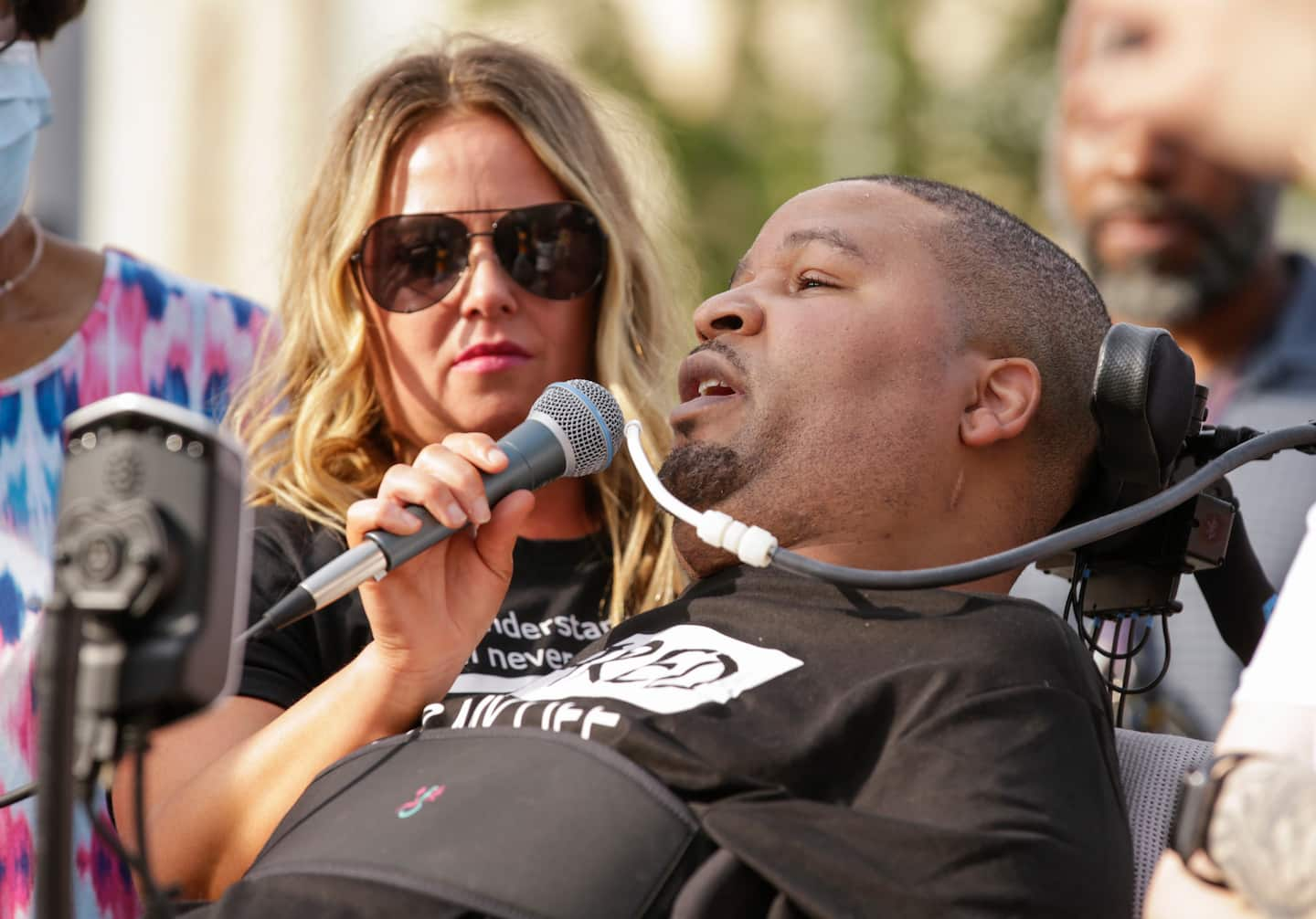The car as a symbol of freedom? Not if you’re Black.

Last week, it led to the death of Daunte Wright, a 20-year-old Black man killed by a police officer after being pulled over in Brooklyn Center, a Minneapolis suburb, for expired tags. When officers learned Wright had an outstanding warrant and tried to detain him, Wright got back in his car. Officer Kim Potter then fired one fatal bullet in Wright’s chest. Potter claimed she mistook her pistol for a taser, which she said she intended to use. She is being prosecuted for second-degree manslaughter.
That same week, video was released of Army medic 2nd. Lt. Caron Nazario being held at gunpoint, pepper-sprayed and threatened during a traffic stop in Windsor, Va., in December. Officers pulled Nazario over because they allegedly didn’t see the temporary tags on his newly purchased SUV. Nazario put on his turn signal to demonstrate that he was complying but kept driving because he didn’t want to stop the car in a dark area. When he pulled into a well-lit gas station, officers approached his car with guns drawn, fired multiple rounds of pepper spray in Nazario’s face when he said he was afraid to leave the vehicle, and, according to a lawsuit, beat him up once he left the car.
This is not exclusively a race issue. When most Americans have a negative interaction with police, they are in their vehicles. Traffic stops and car crashes make up almost two of every three contacts between police and the public, according to the Bureau of Justice Statistics.
But, as usual when it comes to law enforcement, Black people get it the worst. Virtually every study finds that they don’t commit more traffic offenses than anyone else, but they are disproportionately stopped by officers. It’s so bad that one report found African American drivers are less likely to get tickets in the evening, because when it’s dark, it’s harder for cops to discern the race of drivers.
The Supreme Court blessed this selective enforcement in a 1996 case, Whren v. United States. Washington, D.C., police pulled over a car for traffic violations, including waiting too long at a stop sign and failing to signal a turn. Lawyers for Michael Whren, a young Black man who was a passenger, argued that the police did not really care about those infractions, but were just looking for an excuse to stop the car. The Supreme Court ruled the real reason that police stop cars doesn’t matter, as long as there has been a violation of the traffic laws.
To demonstrate how much power this gives cops, a police officer invites my law students on a “ride-along,” where they accompany him on his patrol. They play a game he calls “pick a car.” The student points to any car on the street and the officer stops it. There are so many traffic infractions, he can follow any car for a few blocks and find a legal reason to stop it.
We have seen the tragic consequences of this power, and how some departments have embraced it as policy. In 2015, Sandra Bland was pulled over for failing to use her turn signal. After Bland protested the stop, she was arrested and found hung in her jail cell three days later. Her death was ruled a suicide.
In 2016, Philando Castile was pulled over in Falcon Heights, a suburb of St. Paul. His girlfriend, a passenger in the car, live-streamed on Facebook what happened next. Castille told Officer Jeronimo Yanez he had a firearm in the car. Yanez told him not to reach for the weapon. Castille apparently didn’t, but Yanez shot him five times. Yanez was charged with manslaughter, and acquitted by a jury.
Before the stop that killed him, Castile had been stopped 49 times in a period of 13 years for traffic offenses that most times ended up being dismissed. Brian Encinia, the officer who pulled Bland over, had written 1,600 tickets in less than a year.
Enforcement at this level is not about road safety. Cops use traffic laws as an excuse to investigate people they find suspicious. Or to generate revenue for the government from tickets.
Windsor, Va., where Nazario was stopped, has fewer than 3,000 residents. But its police officers have been writing around 200 tickets a month — a substantial portion to people who don’t live there.
Berkeley, Calif., recently banned its police officers from making stops for minor traffic offenses. Technology may offer some resolution in several years when cars are self-driving. But the traffic issue is really a microcosm for all misdemeanor law enforcement. There are petty crimes that people of all races commit, but the laser focus of the police remains on Black and brown people.
Read more:






